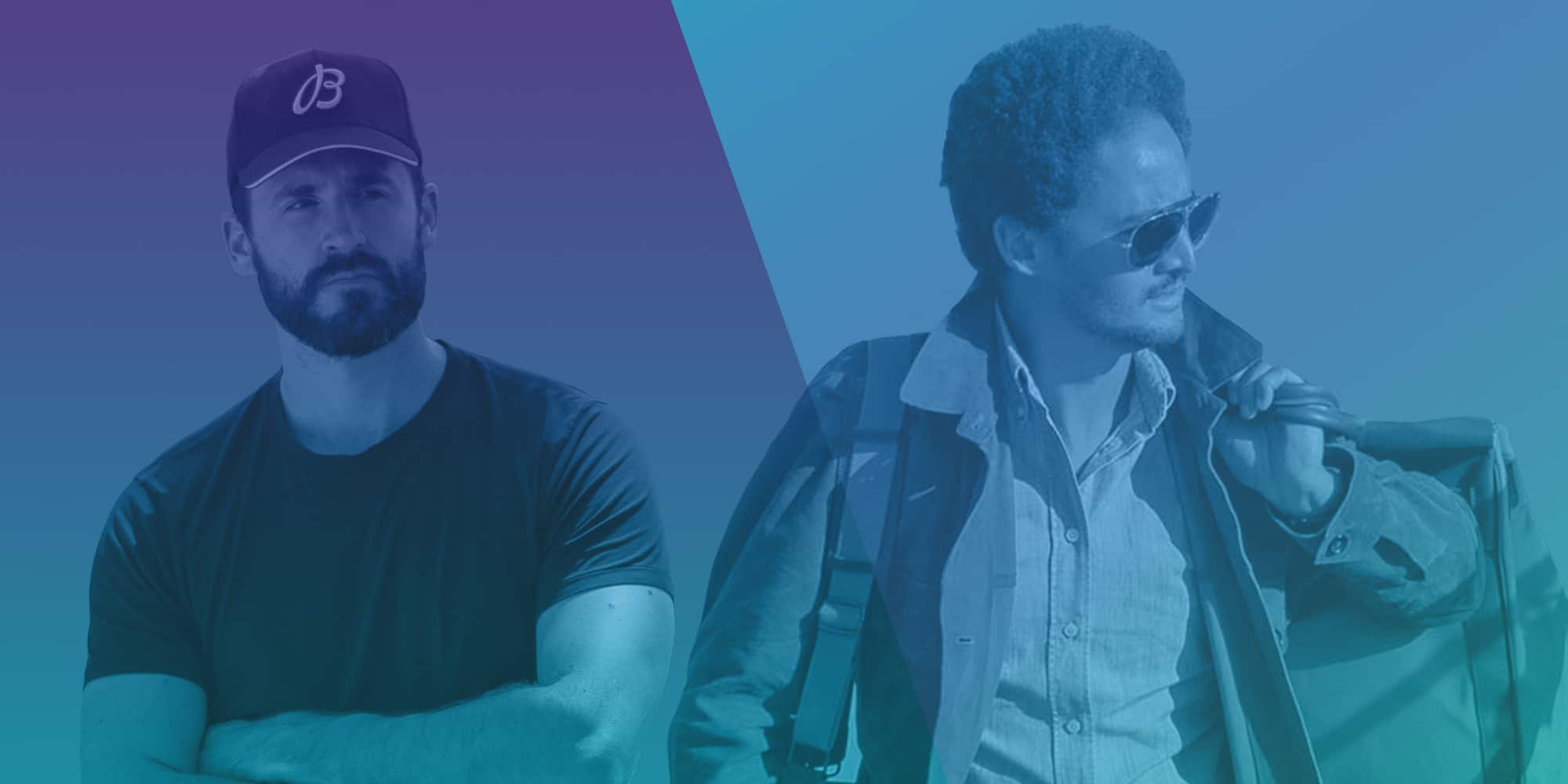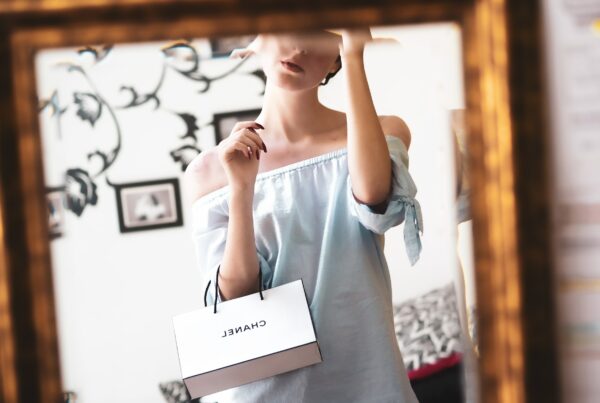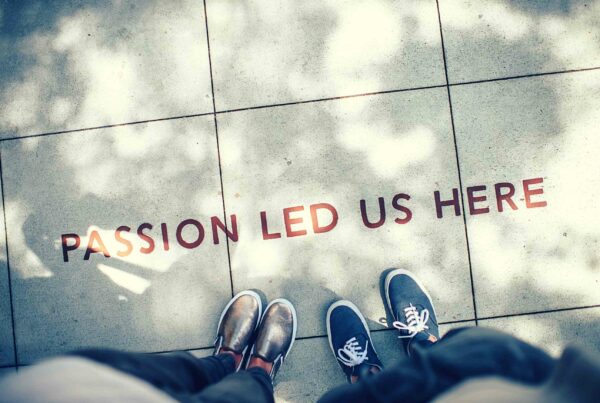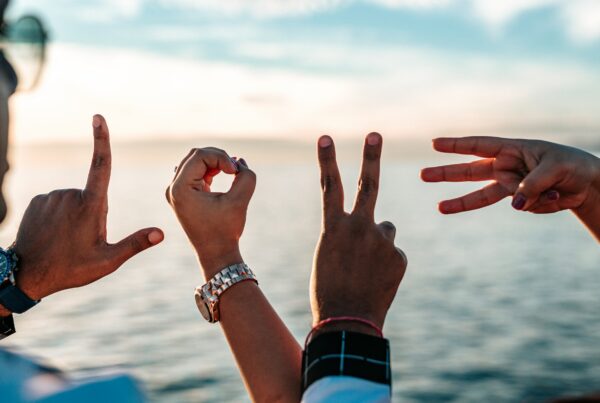POWER TO THE INFLUENCER
EPISODE 4
TRANSCRIPT
Dom: Hi, everyone, and welcome back to the Sociably podcast. I’m here with Louis.
Louis: Hi, everyone.
Dom: We’re going to call this podcast ‘Power to The Influencer’. So, I guess, what does it mean? Do you like it?
Louis: Yeah, I like it.
Dom: I just came up with that. So, what do you think that means Louis, if I put you on the spot now – what am I on about?
Louis: Yeah, you put me on the spot right now! ‘Power to The Influencer’… I would say for me, it sounds like there’s a sort of shift. I guess that’s the whole conversation we’re going to have – that I feel the influencer has a bit more of a voice. And not just “Okay, we want you to be part of this campaign, here are the terms, here is a contract, yes or no?” And “We’re expecting you to do X, Y, Z with content creation plus X, Y, Z with deliverables or, you know, insight”. I think now there’s a bit more to it from both parties.
Dom: Yeah, because I suppose people that might be listening to this that aren’t involved in marketing at all, and definitely not influencer marketing. I suppose just to give a bit of background of how an influencer arrangement would look and how it originally would have looked maybe up until now. Historically, it’s been lead by the brand really, hasn’t it – the brand coming maybe direct through an influencer or coming through an agency like us, and saying that “we’ve got this campaign, we want to find x number of influencers”. Then the agency will go and broker the deal with the influencer and say, “Look, this brand would like to work with you. These are the terms”. Maybe it’s a gifted activation, where they just get given products in exchange for a certain number of posts on their Instagram, for example. Or it’s a paid partnership, where they’re obviously getting paid for the exposure. But it’s really often been led by the brand, hasn’t it, rather than the influencer having a lot of say, especially in the terms in the contract.
Whereas recently, there’s been a bit of a shift almost similar to the situation you’d have of an actor and the contract they would have had with the studio. It’s almost like, okay, if you’re an influencer, do you want to be working with this brand? Do you want to be associated with this brand? I think brands for a long time thought they could go to the influencers and say “Look, we’ve got this gig, this is how much we’re going to pay you, so kind of, get on with it”. Whereas now, I suppose it’s about the power being back in the hands of the influencer. Or at least having more of a balance of power, where the influencer can say, “Okay, I’m interested in the project, I like you as a brand. I think it’s a good fit for my audience. I think it’s going to be an authentic conversation for me to have. But I want to know more about it. I’m not just going to accept the terms you give me, and I’m not just going to do it based on how much you want to pay me. I want to know more about it”.
And I guess, what does that mean? What we’re talking about here is influencers saying to the brands, “Who else is going to be involved? Who are the other influencers that you’re going to have on this campaign? Maybe they don’t reflect well on me as an individual, maybe I don’t want to be associated with them when this come campaign goes live and say, there are 10 other influencers and I have no idea who those other people are. Suddenly I’m going to be put in the same pool as them”.
Louis: Yeah.
Dom: And you know this, Louis, from first-hand experience – say if you’re doing an experience where the influencers all rock up to a location on the other side of the world, how often has a brand ever told you who else is going?
Louis: That’s definitely a very interesting subject and there are quite a few things to talk about. Even though this is not our first podcast, for the new people hopefully joining us and listening to this podcast, I think it’s important I give a bit of context and background.
So I’ve had the chance for probably almost seven years, to be invited to different experiences organised by brands mostly in the luxury premium sector, from watch brands to car brands to wine and spirit brands, or sometimes fashion brands – so a bit of everything “lifestyle”. And I’ve seen a big evolution – especially in the last two or three years I’ve seen things from a totally different perspective. From more the other side – the brand side of it and the agency side of it, having been part of Sociably. So I’ve seen both sides of “the business of influencer marketing”: the influencer being invited to an experience by a brand – most of the time organised via an agency – and the other side when as an agency, we work on behalf of a client and we need to organize an experience either in the UK or abroad involving a couple of influencers.
So for me, it’s been very interesting to see the approach from both sides, and who and what’s important to consider. Especially nowadays in a new context – you know, a cultural and economic context with Covid-19 and more recently, Black Lives Matter, that I feel has had even more of an impact on that sort of shift of power – of influencers having slightly more power, sometimes more represented directly by the agency. So the agency representing and managing the influencer that will voice and talk directly to the brand, or the other agency representing the brand, asking for more feedback and due diligence work on the brand.
Dom: And with your influencer hat on for a minute – have you have you ever been on an experience where you’ve had a heads up on the other people?
Louis: I think maybe the typical thing would be either the brand, if it’s the brand inviting the influencer or the agency directly to an experience that they’re hosting, it’s very rare that they’re going to be vocal about who the other influencers are. It’s a bit of hit and miss, like, hope for the best and let’s see!
Sometimes, you know, it’s an experience, that could be amazing, going somewhere quite special and having the chance to discover a new destination. Most of the time it’s all positive. Sometimes it’s actually proper work and it can be, you know, a 12 to 14 hours shoot the whole day, getting the content down, getting the right assets that the client is expecting, and getting that shot, edited, and posted within 24 hours, because that’s the whole point of Instagram: you have to be relevant and produce the content. That’s the way we work. Most of the time you need content – especially if it’s an event or a live lounge – to be up really quickly. So it can be quite intense. Quite intense and challenging.
But most of the time, we have barely no visibility on who else is joining. And as you know, when you work in quite a stressful environment, sometimes we can be… maybe “competing” is not the right word, we can be “competing”, or challenging, or there can be someone that you already had an experience with, and that first experience didn’t really go that well or you didn’t get along; you don’t share the same vision or same way of working and you have to work with that person. So it can be even more challenging.
Or sometimes it’s a great surprise. I’ve personally met people through experiences and most of those experiences were really positive – I got to know people that I already sort of knew digitally, I would say, and managed to physically meet with them and we got along really well. And sometimes it doesn’t work, and that’s where I think that transparency is important – I’ve never had an agency or brand saying “here are the other guests we going to have for this experience. We are going to share 24-48 hours together and create the content together”. And that’s something that would be nice to know.
Dom: Yeah, on a social and professional level. But also, you’re then associated with a campaign outside the influencer world, so you’re putting your face on the billboard basically, with five other people. So you’re going to want to know who those people are before you sign up.
Louis: Exactly. If we’re all on the same experience for a product launch and it’s quite individual in a way and we have to capture content around the same product. It all goes on individual channels and there’s no real brand association from an influencer perspective. Yes, we’re on the same event activation and we capturing the same content in a way but it’s all individual. So that’s one thing.
It’s another thing when again, like you said, there’s a bit of a brand image association, not just necessarily with the brand but also with the other influencers – so if it’s more like a group shot or an activation where they really want to show that it’s a lifestyle experience. Sometimes you have to play the game – the brand asks you to act like you’re best friends and you know each other, when you actually just met on the shoot. I’m pretty sure some people can identify themselves in what I say. It’s happened to me a few times. I guess that’s the role of acting or modelling – sometimes you have to adapt really quickly to a situation and react…
Dom: Family Christmas.
Louis: Haha. That’s a good one too.
Dom: It’s just like family Christmas but you get paid.
Louis: It’s probably a 2020-2021 buzzword but “diversity” is key and essential, especially in influencer companies. That’s the way we’ve been approaching a lot of our campaigns since we started.
Dom: Since we started, yeah.
Louis: It’s been quite interesting, not necessary in a good way, to see how some brands, at that level, still don’t really consider diversity in their company.
Dom: Yeah, the backlash from a brand’s perspective. But of course also, if you’re an individual involved (going back to that point) and you’re there… it’s out of your hands. To remove yourself from that is going to be quite difficult if you’re an influencer, and to still get paid, you know… all those different factors. It’s kind of a bit late by that point and the damage has been done, because it’s already gone everywhere, and people are talking about it in a negative way. And that could potentially have a negative impact on how much work you’re going to get from other brands and how your followers interact with you and how they view you – maybe they put you in the same category as that brand and that message that was going out. And that’s really unfair.
Louis: But we’re going to see more and more influencers – and influencer agencies managing influencers – getting more involved and putting “diversity” under contract; that campaigns need to reflect diversity, and the influencer will get involved only if he or she has visibility on who else is joining that activation. Just to make sure that, you know… sometimes it’s not necessarily a following or numbers thing, like in terms of quantity of followers. It’s also like a quality thing, like making sure that we actually, depending on the product they’re trying to push, that we own the same positioning.
Dom: And that intangible moral clause: what sort of values are important to them (the influencer)? That’s not something that comes across with how many followers you’ve got, right? It’s deeper than that. And I suppose that it goes both ways as well, doesn’t it? Because from an influencer’s perspective – or if you’re an agency representing an influencer – what steps can you realistically take? Say you’re looking at a brand – you can look at the brand now, you can look at their history, what they’ve done previously, but a lot of it is anticipating things. But it’s obviously very difficult to anticipate what might happen further down the line.
Louis: You can’t really predict. You can do your research, and check the previous campaigns they’ve done in the past by googling or looking up on their social what the previous campaigns they’ve done are. Or even by looking at hashtags from the brand and seeing their previous activations.
Dom: It is very unbalanced. Influencers are expected to give everything over to the brand in that initial process. Brands would explain little beyond what the brief is. I think it’s fair to say that a lot of that probably comes from the fact that in that relationship, most of the time, the brand is the one with more power – they’re the people with the money, right? They’re the ones who are paying. Unless you’re talking about a really, really high profile individual, the brand is not surprised that they’re the ones who can kind of, call the shots.
But as a result of that, I think influencers haven’t probably helped themselves that much, either, because there probably is that fear to ask questions.
I guess what we’re getting at in this conversation is that there probably needs to be a bit more of a shift to the point where influencers should basically just ask more questions, in a simple way – in the way that you would do when you’re negotiating the contract with the brand.
Louis: Yeah.
Dom: That’s the point where you need to be negotiating, not just looking at the price and saying, “Oh, there’s a massive contract, how much are you paying me and how many posts do you want?” You should be actually looking at the other bits and negotiating and discussing those.
Louis: I think it’s about being aware now of the bigger picture, like you said. You can’t really predict what’s going to happen with a brand you were working with, you know, 12 months ago, and you figure out 12 months later that they’re going to press because they cheated on their emissions or other things, and you’ve been supporting and endorsing that brand.
Dom: And what do you say at that point?
Louis: And you figure out, well…
Dom: Yeah, exactly. “I’ve been promoting a brand that I do genuinely believe in; now they’ve turned out to be something I didn’t think they were”. And does that look good or bad for you? I mean, it depends on the relationship, and it’s a tricky one. It’s an interesting topic that we will probably come back round to, and is something that’s only going to become more and more relevant, I think, over the next year or two.
We’re going to do another podcast – we’ve touched on it a little bit in this one – just talking a bit about what’s happened in the last few months, specifically around Black Lives Matter, and just having a conversation about that. And seeing what the impact has been in our industry of that, and where things need to go, and changes that need to happen, and our own views on that. So we’ll do another piece about that soon, hopefully.
But for now, thanks very much for listening, as always, and please let us know if there are any topics that you’d like us to discuss. Or if you’re listening and you think you’d like to join in this conversation, then we’d love to have you on board.
Louis: More and more of you have been tuning in to our podcasts. There have been quite a few podcasts about Dom and I having conversations about the industry from both sides – the influencer side, and the brand side. Over the next few weeks we’ll be inviting guests from again, both sides, either the influencers/the talent side, or people from the brand side. We’ll have some really cool, interesting people on board. And not necessarily purely marketing – I’m thinking of, you know, designers from cool car brands or entrepreneurs that have managed to set up really cool fitness businesses in London… generally just people that I think would be quite interesting to have on board.
Dom: I want to throw these questions at them and see what they think! See if they’d be listening, ha.
Louis: Yeah.
Dom: Alright. Cool. Thanks very much for listening.
Louis: Thank you guys.
Dom: We’ll hopefully be back talking to you all very, very soon.
Go to home page or view case studies.



